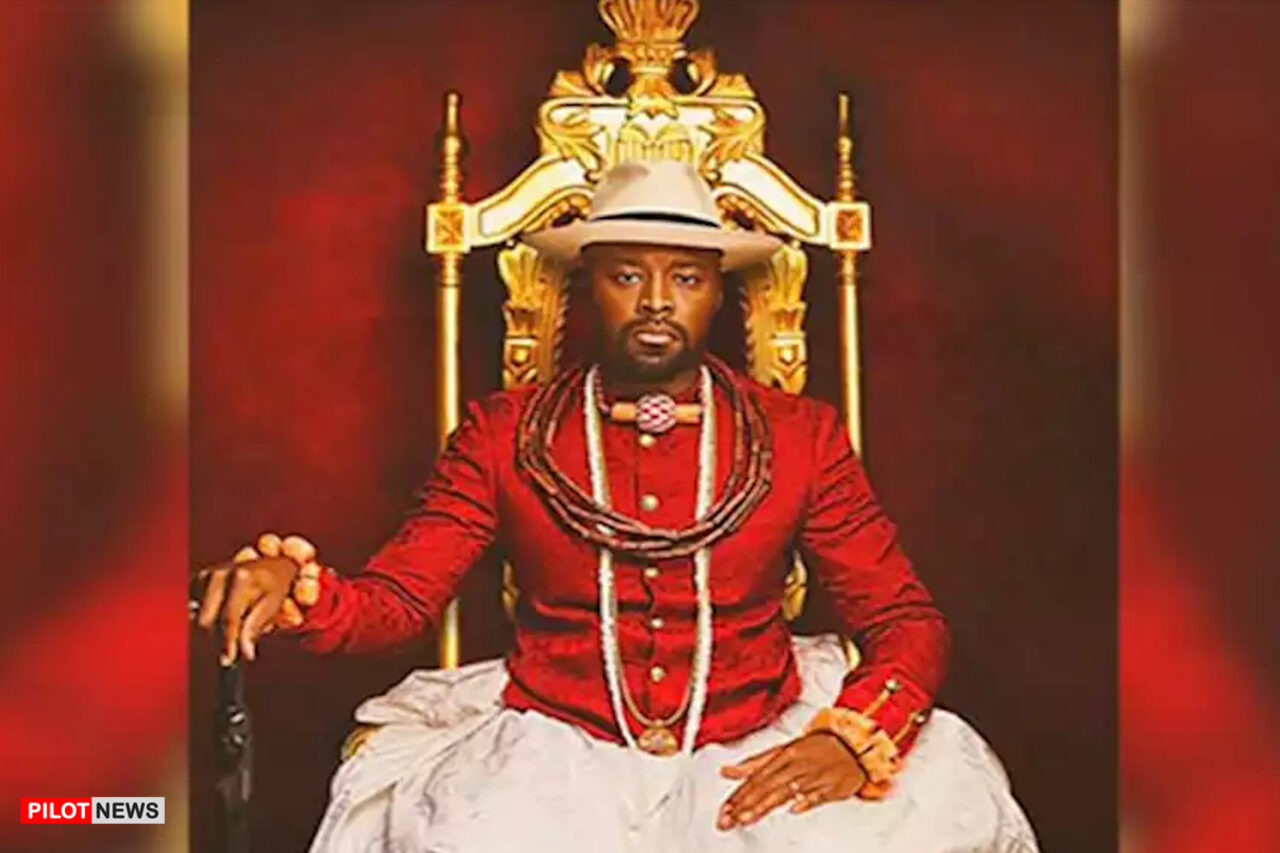Culture in Nigeria has its diversification peculiar to the different states and tribes in the country.
On the 21st of August, His Majesty Utieyinoritsetsola Emiko was crowned the 21st Olu of Warri, Ogiame Atuwatse III at Ode-Itsekiri kingdom in Warri South Local Government Area, Delta State.

Before a king’s ascension to the throne, he is expected to perform certain traditional rites. A few days ago, on Channels television, a kinsman from Warri explained the rites performed for the selection of a king’s throne name. He explained that the designated king would be blindfolded and several swords in Itsekiri, marked with the names of the previous Olus in every reign, would be lined up from which he (the designated king) would pick one. The number of the previous Olus determined the number of swords arrayed. For example, in King Ogiame Atuwatse III’s case, twenty-one swords were arrayed signifying the past twenty Olus and him, being the current Olu-designate.
All the swords, except one, bear the throne name of the respective previous rulers. If he (the Olu-designate) picks any of the named swords, he automatically bears that name as his throne name throughout his reign (either as the second, third, or the next number). However, if he chooses the unnamed sword, he would be at liberty to decide a throne name for his reign. He could choose any of the existing names or a brand new one just like the late immediate past Olu, Ikenwoli, did in 2015- he picked the unnamed sword and chose the name, Ikenwoli, given to him by his father.
The kinsman clarified that when an Olu-designate chooses a new name, he would not be addressed as the first, even though he is; when another Olu-designate picks the sword marked with that throne name, he would then be addressed as the first, and the current king, as the second. He (the kinsman) mentioned that the swords were mixed and not lined up sequentially including the unnamed one, which means, the unnamed one could be at the beginning, middle, or the end.
He further disclosed another significant aspect of the ceremony saying that Okotomirigbo, being the original quarter in Ode-Itsekiri, would have its head present at the place of the performance of the rites. This head of the Okotomirigbo quarter would be the one to swear in the Olu-designate as laid down in the tradition. After the king is sworn in, the chiefs who represent the Itsekiri nation will gather before the king to pledge allegiance- to never be recalcitrant to him but to work for him, serve him, and worship him. The kinsman stated that it was a necessary part of the rites since the king had taken an oath before the oldest person in Okotomirigbo.
We have a saying that if a child has dressed as much as an old man, he will not have rags as much as an old man. Those rags are experience and experience is wisdom. Make use of the experience of people around you.
On Sunday, 22nd August, at the thanksgiving ceremony following the coronation of King Atuwatse III, former president, Olusegun Obasanjo, commemorating the king, made the statements below in his speech:
“Two things I will leave with you: one, do not shun the experience and the advice of elders. We have a saying that if a child has dressed as much as an old man, he will not have rags as much as an old man. Those rags are experience and experience is wisdom. Make use of the experience of people around you. The second, please, be very close to God. Whatever situation you may find yourself in, please, be close to God and God will make way for you even when and where people may think there is no way. Let me say this: I will not be far from you and if at any time there is any reason for you to summon me, use your majestic power to do so. It will be well with you.”
These words alongside a video of him paying homage to the king on his knees have evoked awe and a sense of admiration from Nigerians about the public display of such a humbling act from an elderly dignitary.
♦ Favour Chiagozie Ebubechukwu is an Editorial Staff Writer and columnist with the WAP
- Anambra 2025 Governorship Election Might Be an Open Contest - April 24, 2024
- Anambra Assembly Passes Bill To Prohibit Secret Cults - April 24, 2024
- 2024 Aguata NBA Law Week: AG, Prof. Ifemeje Touts Landmarks and Expectations - April 19, 2024



4 comments
Favour Ebube
August 28, 2021 at 7:20 am
True.
Despite the reason behind his act, people (especially the young adults in the city of Lagos) has made his statement and his act a point of admiration and emulation.
Thank you for taking the time, Margaret. I appreciate your readership.
Bems
August 26, 2021 at 2:01 pm
Okotomu-Irigbo is the correct spelling not okotimirigbo. Thanks
Favour Ebube
August 28, 2021 at 7:01 am
Most grateful for your keen observation, Bems. This is noted.
Denedo Margaret
August 26, 2021 at 9:36 am
The former president Olusegun Obasanjo, didn’t kneel for the Only of Itsekiri kingdombut to the ancient throne of Itsekiri kingdom which is as old as Obasanjo’s ancestors